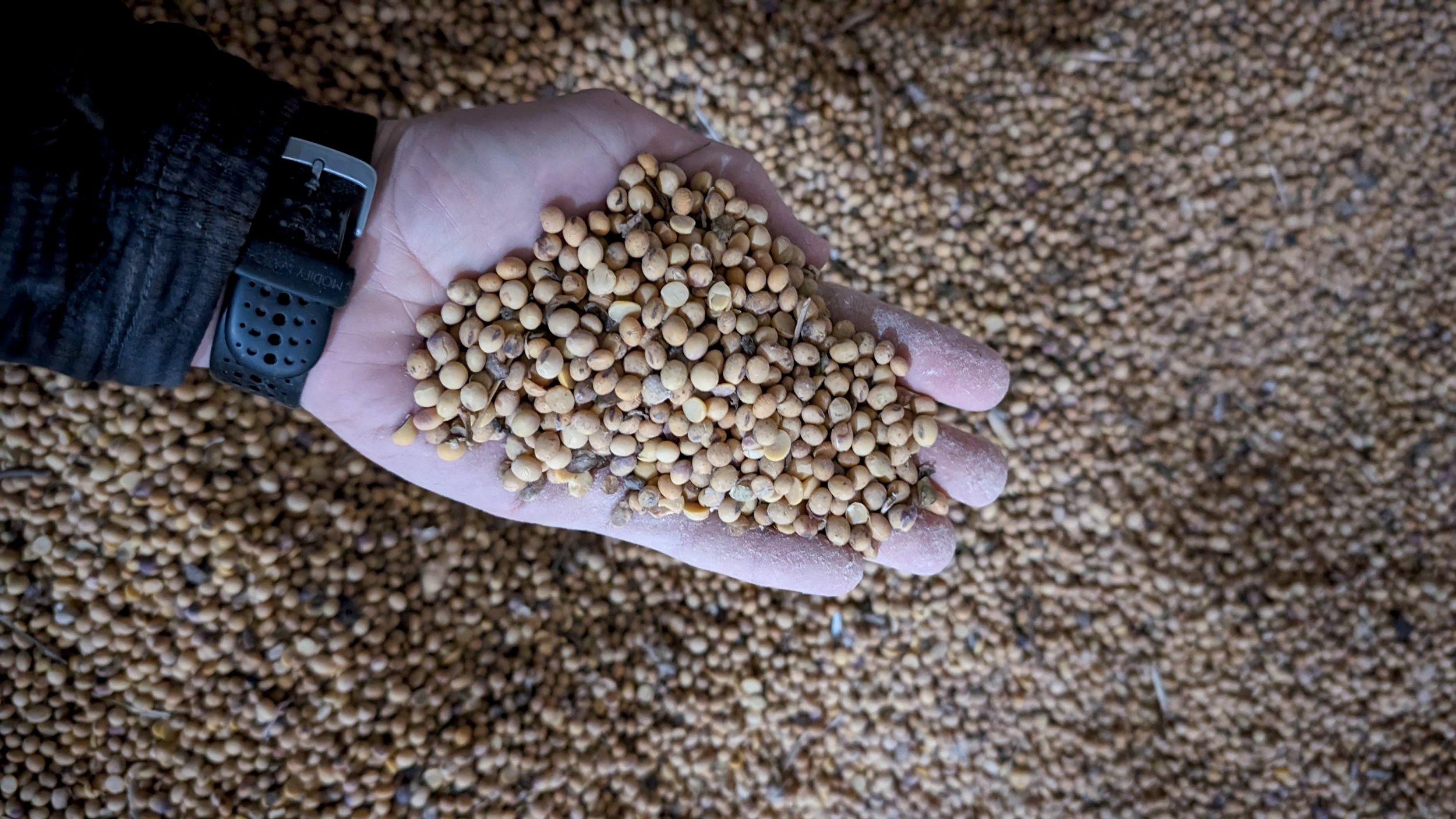The Crucial Role of Seed Genetics in Agriculture
Pictured: A handful of high quality soya going out to farmers in Central Asia!
At the heart of every successful farm lies a simple truth: healthy, resilient seed varieties are critical to productive and sustainable agriculture.
In our work, understanding and investing in seed genetics is more than just a scientific pursuit — it's a calling to nurture the land, feed communities, and honor God's creation.
Seed genetics encompasses the inherited traits that determine a plant’s characteristics, such as yield, drought tolerance, disease resistance, and nutritional content. As farmers face challenges from climate change, pests, and resource limitations, developing and promoting superior seed varieties becomes essential.
When we invest in seed genetics work, we are equipping small-scale farmers with tools to grow more resilient crops, improving food security and livelihoods in our communities while helping locals create pathways to Kingdom service.
“Imagine doing your job with outdated tech. That’s what it’s like to be a farmer working with outdated genetics.”
One of the most vital aspects of seed genetics is the development of varieties that withstand environmental stresses. For instance, drought-tolerant seeds help farmers in arid regions thrive even during prolonged dry seasons, reducing crop failure and hunger. Disease-resistant seeds minimize the need for chemical pesticides, promoting healthier ecosystems and safer food. Nutrient-enriched seeds can combat malnutrition by boosting the micronutrient content of staple foods, addressing hidden hunger that affects millions.
But seed genetics work isn’t just about science; it’s about stewardship. As stewards of God's creation, we are called to manage the land responsibly and ensure that future generations can enjoy its bounty. By focusing on developing seeds that are locally adapted and can be grown sustainably, we honor our calling to care for the Earth and its inhabitants.
Furthermore, sharing improved seed varieties empowers smallholder farmers, the backbone of food production worldwide, especially in developing countries. Access to quality seeds leads to higher yields, better income, and strengthened community resilience. It also fosters a sense of hope and dignity as farmers see tangible results from their hard work.
Pictured: A team member shows his latest work in the tech/research lab at our partner feed mill in Central Asia.
So what keeps farmers from high quality seed?
“It’s a few things,” Justin explains. "In smaller markets, people can buy your high quality seed and propagate it, essentially stealing your seed. For many seed-breeders, it’s frustrating to compete against your own product as people rip off your hard work. Many breeders would love to see their genetics in the hands of farmers who need it the most.”
Another prohibitive factor for many farmers is the high cost of these better quality seeds, and in other regions like where several of our team members lived in northern Iraq, the problem was a legal bottleneck. It might take ten years to approve a new variety of seed. So by the time the seed was approved, it was already outdated.”
In short, seed genetics work is the foundation upon which sustainable, resilient, and nutritious agriculture is built. Our AgGrandize genetics division is led by Paul Lang, a legacy contributor to this work whose international ag experience predates AgGrandize by many years. Paul understands the importance of modern tech and genetics and has spent decades working to bridge the gap between the poorest farmers and the most powerful tools.
To you and the rest of this community: thank you for continuing to invest in seed research, education, and distribution. We believe you are sowing seeds of hope that will grow into lasting change for generations to come!



